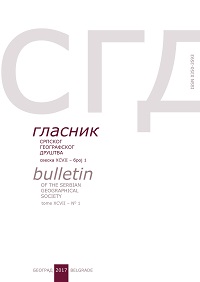The Challenges of Automobile-Dependent Urban Transport Strategy
The Challenges of Automobile-Dependent Urban Transport Strategy
Author(s): Miomir JovanovićSubject(s): Policy, planning, forecast and speculation, Rural and urban sociology, Political Ecology, Economic development
Published by: Српско географско друштво
Keywords: automobile dependency; public transport; sustainable urban development; urban planning; land use/transportation studies; automobile industry; highways;
Summary/Abstract: The fundamental aims of sustainable urban development and the pro-automobile oriented economic development are on a collision course. It is obvious that automobile-dependent urban development is under heavy/powerful influence of the automobile lobby (automobile and oil industries, along with construction). In this domain famous land-use-transportation studies (or ‘grand transportation studies’) are, unfortunately, still prevailing - a vicious circle of self-fulfilling prophecy of congestion, road building, sprawl, congestion and more road building. Until recently, it was commonly thought that investment in public transport was not economically sustainable and that focusing on the development of the automobile industry and financing the construction of roadways stimulated economic growth. In this paper we clearly show that automobile industry is now overcapitalized, less profitable than many other industries (and may become even less profitable in the future), that transport market is characterized with huge distortions (more than a third of motor-vehicle use can be explained by underpriced driving), while new road investment does not have a major impact on economic growth (especially in a region with an already well-developed infrastructure), and that pro-automobile transport strategy inexorably incurs harmful global, regional and local ecological consequences.
Journal: Гласник Српског географског друштва
- Issue Year: 95/2015
- Issue No: 2
- Page Range: 75-98
- Page Count: 24
- Language: English

